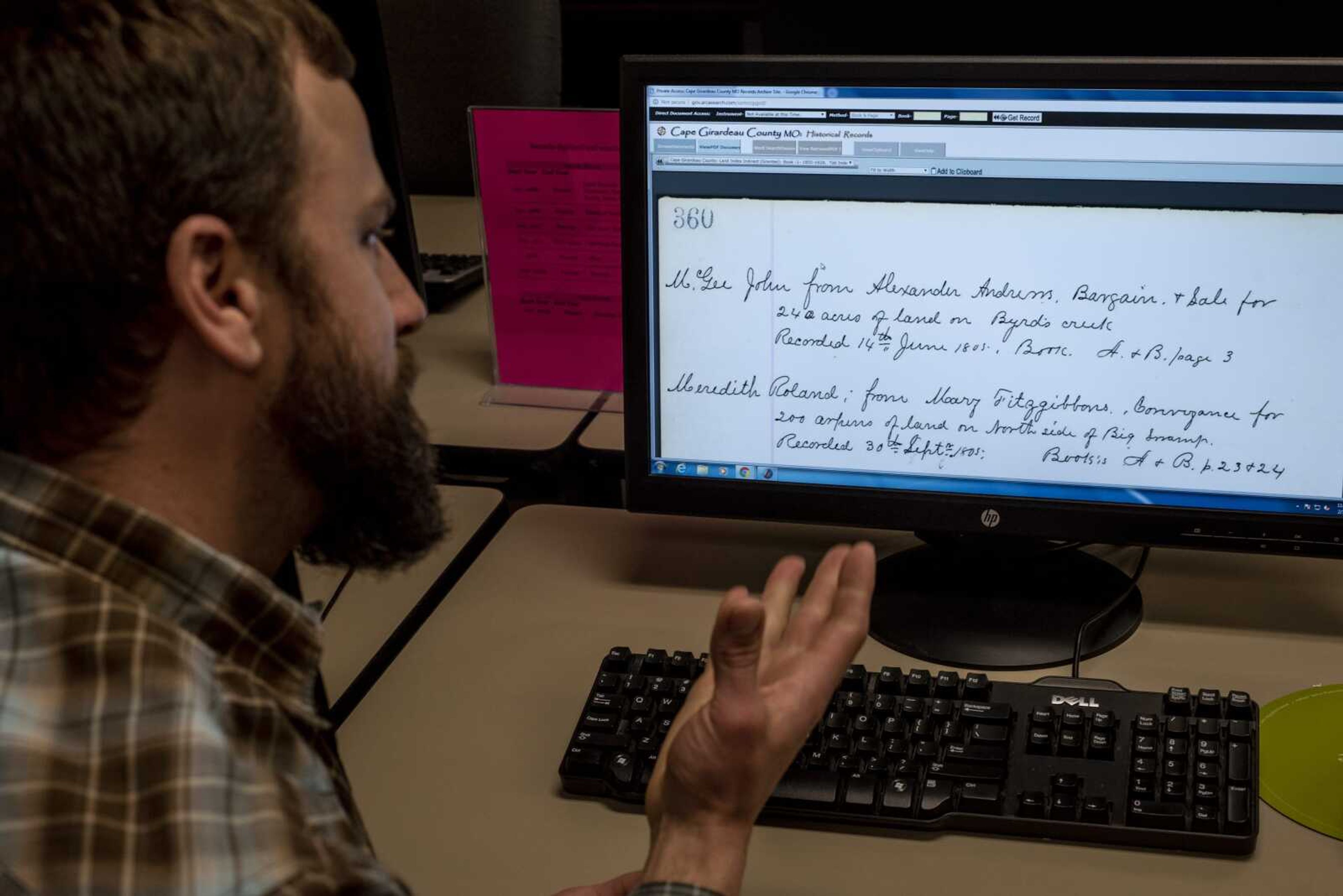Cape Co. deed index books available online
Cape Girardeau County Recorder Drew Blattner turns pages in a thick book longer than his forearm: a deed index book. Its pages are curled and worn away at the edges, some ink is blurred from countless fingers riffling through for information. The leather and canvas binding is cracking, and the simple thread the book is sewn together with? It's fraying...
Cape Girardeau County Recorder Drew Blattner turns pages in a thick book longer than his forearm: a deed index book. Its pages are curled and worn away at the edges, some ink is blurred from countless fingers riffling through for information. The leather and canvas binding is cracking, and the simple thread the book is sewn together with? It's fraying.
So last year, Blattner applied for a grant to digitize the deed index book collection, and not only preserve what's still legible, but slow the rate of damage from regular handling.
The deed index books list the locations of land title deeds in other volumes -- more than 600 bound volumes with thousands of entries each.
Without the index, it would be next to impossible to find the deeds, Blattner said, and the deeds are necessary to establish chain of land ownership or determine whether a property has easements.
The deed index books range in date from 1805 to 1989, and total 86 in number, Blattner said. Some are in worse condition than others -- in past attempts to preserve the books, some were laminated, for example. That lamination is great, at first, Blattner said, until it darkens, and the pages beneath aren't legible anymore, and the lamination can't be removed.
Some pages are discolored by tape, applied long ago and removed, but the residue remains.
And every time the books are placed on a copy machine, Blattner said, the binding has stress placed on it, the pages can crinkle, and over time, repeated exposure to the copier's bright light can fade the ink.
"That's not good," Blattner said.
As many as 10 people at a time might be in the records room, Blattner said, and some people return day after day to research chains of ownership.
Blattner applied for the grant from the Missouri Secretary of State's local records preservation program and hired a company to digitize the deed index books.
Finding an imaging company with the necessary specialized equipment was a challenge, Blattner said.
It wasn't a matter of using a flatbed scanner and saving the files, since the pages were in varying conditions.
For some of the books, a customized table with a sheet of glass was used, Blattner said. The two-page spread was compressed under the glass so the pages were as flat as possible, then a digital image was captured.
And the captured images are in full color, Blattner said. That's important because black-and-white images can be hard to read if the difference in shade between paper and ink isn't strong enough.
Users can zoom in on images to see more clearly, Blattner added, an advantage over the books.
All of the deed index books are viewable at no cost online at gov.arcasearch.com/usmocpg/, Blattner said.
A link is also on the recorder's website, he noted.
"Anyone with internet access can view them from anywhere in the world," Blattner said.
Last year, Blattner told the Southeast Missourian he requested the state provide about $24,000 in funds to digitize the index books, and about $12,000 from the county for a total of nearly $37,000.
"It will not only help to preserve the original records but will also save patrons countless trips to the office to search in person," he added.
So far, the response has been good, he said. "Like any new system, it takes some getting used to, but most people I've talked to like it," Blattner said.
In addition to being available online, the files are being preserved on silver microfilm, and when complete, they'll be added to the state archives' microfilm vault, Blattner said.
mniederkorn@semissourian.com
(573) 388-3630
Connect with the Southeast Missourian Newsroom:
For corrections to this story or other insights for the editor, click here. To submit a letter to the editor, click here. To learn about the Southeast Missourian’s AI Policy, click here.










